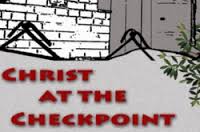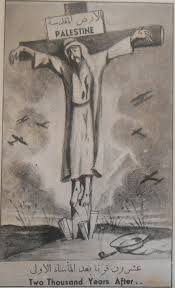|
|
|

|
|
Christian Delegitimization of Israel

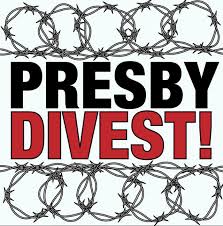

More often emigrating, frequently suffering martyrdom nonviolently, [Jews] were able to maintain identity without turf or sword, community without sovereignty. They thereby demonstrated pragmatically the viability of the ethic of Jeremiah and Jesus. In sum: the Jews of the Diaspora were for over a millennium the closest thing to the ethic of Jesus existing on any significant scale anywhere in Christendom”. (A. E. Weaver, “On Exile: Yoder, Said, and a Politics of Land and Return,” in “The New Yoder,” edited by Peter Dula and Chris K. Huebner, Wipf and Stock Publishers, 2010, pages 149-150)Yoder compares Judaism in contrast with Christianity, which became an empire corrupted by power when the pagan Emperor Constantine made Christianity the Empire’s state religion. Jews, being powerless, lived according to Yoder in an ideal state. Yoder concludes stating that To be born in the state of Israel makes one less of a Jew, in the deep historical sense of the term, than to be born in a ghetto.The Jews ideal situation is the ghetto because there Jews are powerless. This stems from the Christian ideal that powerlessness allows you to stand aside from authority allows you to criticize power, by freeing yourself of the moral dilemmas of exercising power. This position completely ignores the actual condition of Jews in exile, which in reality meant marginalization, poverty, massacres, forced conversions, expulsions, and most recently genocide. In the Jewish perspective, after the Holocaust in particular, it is immoral to be powerless and living exposed to such persecution, whereas it is more moral to gain power to protect yourself. This is what Zionism offers. Liberation theology also speaks of Africans, for instance. Are there any similar stances? Jews are the only people in the world who are subject to this analysis. Let me rephrase what Yoder said in this way: “To be born in an independent African State makes one less of an African in the deepest historical sense of the term, than to be born on a plantation”. Anyone making such a statement would rightly be called a racist, a white supremacist. But a Christian who makes the same statement about the Jews apparently is given a pass, even praised by “progressives.” In terms of historic power dynamics, Christians are to Jews what Europeans are to the Africans. Who are the Christian actors promoting BDS? The most recent case regards the US Presbyterian Church, which endorsed BDS, however it seems to cut across all Christian denominations. In US, there is the Presbyterian Church but also in the United Methodist Church there are activists pushing this agenda intensely. These activists are often in the bureaucracy of churches, which have central offices and functionaries in various positions; these activists are often out of touch with the average member of their denominations. As usual, a small group of activists can do a lot of damage; they can make things happen, while the silent majority goes along with it, usually out of apathy. The Quakers through their American Friends Service Committee, and the Mennonites, an offshoot of the Amish, are very involved in BDS. The Evangelical Lutheran Church of America, which has not yet passed divestment, has activists as does the Episcopalian Church. The United Church of Canada, the Methodist Church of Britain, the Church of Scotland are moving in that direction; Protestant Churches in Scandinavian countries are also moving toward or have already adopted BDS. Finally there are the Christian Churches aid societies, which are associations allocating funds to humanitarian NGOs, but in the Middle East allocate funds to pro-BDS NGOs, some of these are: Kerk in Actie (Netherlands), Diakonia (Sweden), Christian Aid (UK), Trocaire (Ireland), World Vision, Pax Christi (Catholic organisation) and Papa Giovanni XXIII (Italy). Why, in your opinion, do Christian churches focus on Israel, while the political developments of the Middle East and the increasing anti-Christian persecution should raise other concerns for Christian communities in the world? I think there are two reasons. First, this is the Holy Land. This is where Christianity began, so Christianity has a special attachment to this land. Israel is a free country, where churches are able to act without restriction. Secondly, especially European Christians overemphasizing Israel’s action and turning a blind eye on the horrors committed by Muslims against Christians in the region is a way of alleviating the Holocaust guilt. But also looking at the role of the churches in European colonialism, one sees that churches played a protective role for colonialism, even at one point justifying slavery. European Christians are now projecting onto Zionism and Jews, in a sort of post-colonial guilt. It’s a double-whammy: they want to dispense with both colonial and post-Holocaust guilt, portraying Zionism as a colonialist and racist enterprise, in a complex mix of theology, post-colonialism and classic anti-Semitism. The BDS strategy was elaborated by Palestinian political NGOs and now it has become a Christian political issue. What are the relations between Western churches and associations promoting BDS and Palestinian actors? There are several Christian Palestinian groups promoting the anti-Israel theological agenda, including the Sabeel Centre, and the Holy Land Trust. Sabeel is the original model, which the others try to emulate. Naim Ateek, an Anglican priest, created this construct of Palestinian Liberation Theology, which takes all elements of liberation theology and shining them through a Palestinian lenses. The result is Christians speaking to other Christians in liberation theology terms, and this mashes very well. It is no coincidence that this happened. Naim Ateek was aware of the trend in Protestant churches, since he got his PhD from the Presbyterian Theological Seminar in San Francisco. He was also influenced by Mark Ellis, a Jewish liberation theologian and a minor voice in the Jewish world, who to the best of my knowledge influenced Ateek. After the Holocaust, Jewish-Christian dialogue has developed also in terms of support for the Jewish State, as Zionist Christians promote. To what extent do Christian-backed BDS campaigns build upon ancient anti-Judaic and anti-Semitic tenets? The most important use of anti-Semitic imagery is portraying the Jews as crucifiers and Christ killers, which echoes in Palestinian liberation theology. The images of Pontius Pilatus washing his hands, and the Jews screaming: “crucify him!” are particularly powerful. By emphasising their Christian identity, Palestinians describe themselves as Jesus, crucified by the Zionists. Ateek pushes this imagery specifically. He wrote: “In this season of Lent, it seems to many of us that Jesus is on the cross again with thousands of crucified Palestinians around him. It only takes people of insight to see the hundreds of thousands of crosses throughout the land, Palestinian men, women, and children being crucified. Palestine has become one huge [G]olgotha. The Israeli government crucifixion system is operating daily. Palestine has become the place of the skull.” Ateek, Naim, “An Easter Message from Sabeel,” available at: www.sabeel.org/old/reports/easter01.htmWhat is the project “BDS in the Pews” that is managed by NGO Monitor? A pattern was emerging in our research on NGOs: a huge number of the them were financed through a mechanism involving churches and Christian aid societies, which have public-private partnership with governments. These funds are supposedly to be used for humanitarian purposes, but in the Middle East they go to NGOs involved in the de-legitimization and BDS campaigns against Israel. “BDS in the Pews” was set up to study this complex phenomenon. We need to understand the funding mechanisms, yes, but also the theology behind it. Add to this the well-established Jewish-Christian dialogues in most Western countries and the desire not to harm those important points of contact. Our message to the governments is that what they are doing is inappropriate, because the NGOs that receive public funding are actually fuelling the conflict. Our message to Christians is that if they want to be peacemakers, true peacemakers, they will not succeed by demonizing one side. They have to be able to gain the trust of both sides. When it comes to the Israelis, they cannot pretend to gain their trust when they support BDS campaigns, because by doing so they lose their credibility as peacemakers. Have you had contacts with the Catholic Church? We produced a report on Catholic funding and shared it with the Papal Nuncio in Jerusalem, who took our concerns seriously. This is the beginning of what is likely going to be a long process. We want to make sure that the Catholic Church understands that these aid societies operating under the Vatican’s auspices are contradicting Pope Francis’ message to Israelis. When he visited Israel he went to Mount Herzl and laid a wreath at Herzl’s tomb. Thus he recognised Zionism and the right of the the Jewish people to sovereign equality. Therefore, these Catholic organisations, such as Caritas, are contradicting the Pope’s message, by promoting anti-Zionism and one state, meaning disempowering the Jewish people. In this way they are fomenting tensions, enflaming the conflict and making the attainment of peace that much more difficult. Do you have Christian allies and what can Christians do? We have friends in many churches, who recognize that anti-Israel activities expressed in fiercely anti-Jewish terms is dangerous to their churches and Christianity. They see that it threatens their churches. We see that the Presbyterian Church is losing individual churches and losing members. A decade ago the Presbyterian Church was twice the size it is today. So, it is self-destructive. Also, the anti-Israel positions taken in the churches is destroying long-held and hard-won inter-faith understanding and revives inter-faith intolerance. For all these reasons our Christian allies are fighting against the anti-Israel activists in their churches. 
|
|||||||||||||||||||||||||||||||||||||||||||||||||||||||||||
|
|
|||||

















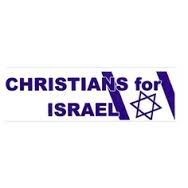
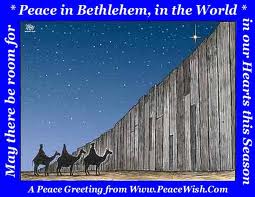
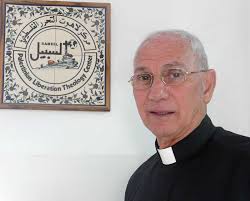 Naim Ateek
Naim Ateek